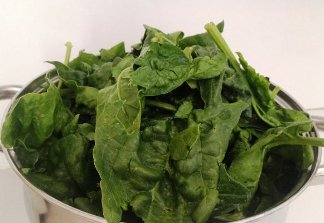Juicing for Anemia

Before considering exactly how juicing can help you with Anemia, let us first see what Anemia is in the first place.
Anemia is a blood-related condition. The red blood cells (erythrocytes) are responsible for carrying oxygen from your lungs to virtually every single cell of your body. Your red blood cells contain an iron-based protein called hemoglobin, which is crucial in the mechanism of oxygen transport.
If it happens that the levels of hemoglobin are low, your blood will no longer be efficient in supplying oxygen throughout the body. This is the point when anemia kicks in.

One of the immediate consequences of anemia is the need for additional effort on the part of the heart. If the concentration of hemoglobin in the red blood cells is lower than needed, your heart will have to do the extra work in order to supply enough oxygen for the normal operation of the organs and tissues. That’s why anemic people feel weak and are easily tired.
There are different causes of Anemia. In fact, there are numerous types of anemia, but basically they are only 3 principal causes: blood loss, faulty blood cell production or destruction of blood cells.
It is important to remember that poor diet could also contribute to anemia. Diet that consistently lacks some of the nutrients that help build red blood cells can lead to anemia.
Table of Contents
Foods That Help Prevent Anemia
We have seen that hemoglobin is an iron compound. Therefore, it is important to consume as much of the iron containing foods as possible. Vitamin B12 is also related to cases of anemia. Having enough vitamin B12 helps make new red blood cells.
Foods rich in vitamin B12 are clams, beef liver, trout, yogurt, eggs and chicken breasts. Foods rich in iron are red meat, liver, beans, dried fruits, spinach, collards, egg yolks, oysters, clams, turkey and artichokes.
Some other foods include rice bran, bee pollen, sesame, flaxseeds, soy products, alfalfa sprouts, spirulina, chlorella and brewer’s yeast as one of the best sources of vitamin B.
Foods rich in folic acid are also very important.
Juicing for Anemia
Here are several juicer recipes you can use in case of anemia:
Juicer Recipe I
- 3 carrots
- 1 beet
- 1 burdock root
- 1/2 pack spinach
Juicer Recipe II
- 3 carrots
- 1 bunch spinach
- 3 celery stalks
- 1/2 teaspoon cayenne pepper
Any juice combination of celery, spinach, apples, wheatgrass, alfalfa sprouts, beets and carrots is very useful for improving this health condition.
Celery juice is great as it helps balance the pH value of your blood. In addition, celery is known to be an excellent natural source of sodium which gives a pleasant taste to the juice combination. Alfalfa sprouts or wheatgrass both contain chlorophyll, which is a blood healing substance.
Dandelion greens juice is a good source of iron and folic acid and can be used to treat anemia. Parsley has a lot of iron and vitamin C, but due to its potential toxicity the amount of parsley juice should not exceed 1/2 cup per day, and should be completely avoided by pregnant women.
 Spinach is notorious for the many vitamins and nutrients contained within, but above all there is a lot of iron and folic acid. Beets possess a lot of natural iron. The taste of raw beets juice can be somewhat unusual, so you can add some carrots to it if you need to ease its strength.
Spinach is notorious for the many vitamins and nutrients contained within, but above all there is a lot of iron and folic acid. Beets possess a lot of natural iron. The taste of raw beets juice can be somewhat unusual, so you can add some carrots to it if you need to ease its strength.
Raw spinach juice is a pretty strong drink, so it cannot be suggested without some additional components to soothe the unpleasant taste. For example, apples are great to add some of their sweet aroma and taste. If you can, add some spirulina or chorella algae powder to finalize the drink.
Conclusion
If you suffer from anemia, there is something you can do to improve your health immediately – choose the right, fresh, if possible organic, non-GMO foods. Use as many of the raw, iron-containing-nutrients and delicious raw juices as you can. Cheers.

Very good inf.
But what about the oxalic acid? Do we have to boil the spinach then juice it? Thanks
That would be the best approach, that is if you want to make sure that the levels of oxalic acid are low. Some people can tolerate higher doses of oxalic acid, so they may be fine juicing raw spinach without boiling.